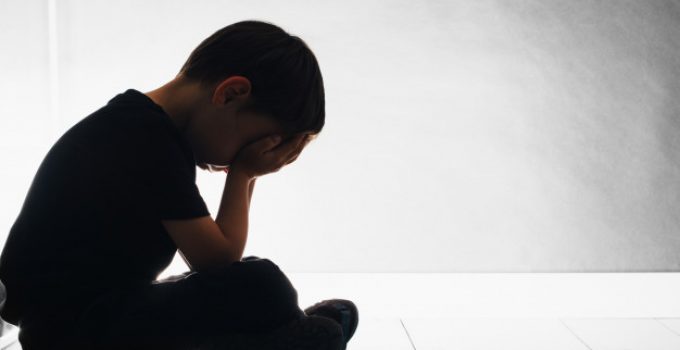It’s an understatement to say that the last year has been trying for parents. Anxiety in parents has been building steadily for months, for a variety of reasons:
They’ve had to learn how to become pseudo
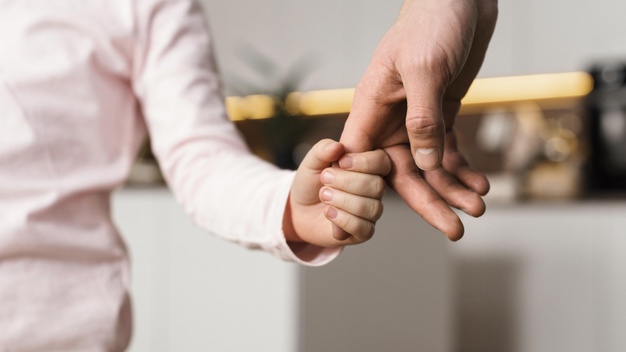
Source: freepik.com
Teachers for their children who had remote learning. On top of the newfound educational attention, parents also had to figure out childcare options. If they were also working from home, they had to learn how to balance their work responsibility with caring for their kids.
If they are an essential worker, there was an even greater quandary. How do you let someone watch your kids when you’re not supposed to let anyone into your circle?
This is without considering the massive financial cost that comes with hiring childcare services. And now, many “free” childcare options (hello grandparents) were no longer an option due to their health risk.
Kids have been socially deprived, and they’ve been responding in different ways. Maybe they’ve been isolating more. Or perhaps they’ve been having mood swings or calling for extreme amounts of attention. They could also be picking fights with their siblings or Mom or Dad. Parents have had to comfort their kids while providing healthy behavioral boundaries.
Parents’ friends and family, who helped them unwind and feel connected, were now off-limits. And when you spend 24 hours a day with the same few people, everyone is likely to get on each other’s nerves.
At the end of the day, kids aren’t supposed to know how to manage to live in a pandemic (as adults, we still don’t really know either!) But there are ways that parents can let go of some of the anxiety they’re feeling, as well as helping their kids learn their own healthy coping mechanisms.
Why We Shield Our Children from Anxiety
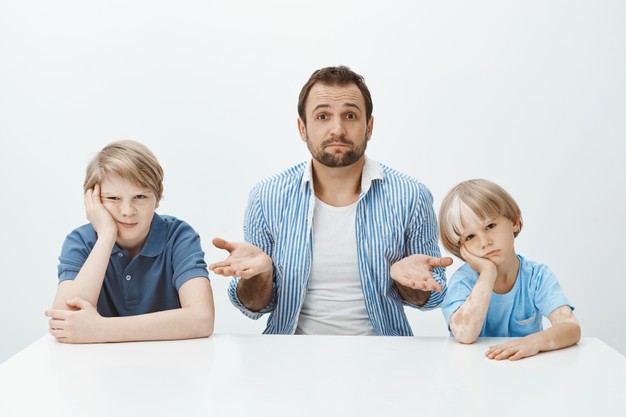
Source: freepik.com
When we see our son or daughter is feeling anxious, our natural maternal or paternal instincts are to make them feel better.
“You’re okay!” “Oh, don’t cry, honey!”
When you unconsciously respond to anxiety in this way, you’re teaching your child that it’s not okay to feel anxious. On top of that, the child will likely start to feel the pressure that if they are feeling anxious (or even scared or sad) that they shouldn’t talk about it.
Whether we like it or not, anxiety is a part of life. While there are varying levels of anxiety, all of us feel it at some point or another. And there’s nothing wrong with that.
But anxiety needs to be seen to truly fade away. When we try to ignore it or wish it away is when we often start to run into even more anxiety.
Acknowledge the Anxiety
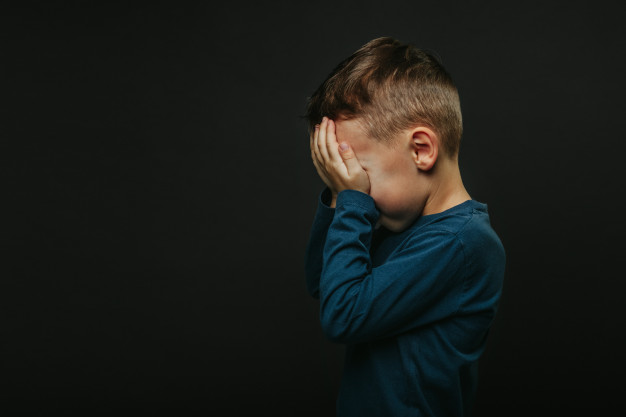
Source: freepik.com
Instead of saying: “Don’t be scared! Everything is going to be alright,” try asking questions. Be calmly curious about what they’re experiencing.
“I see that you seem pretty scared right now. Can you tell me why you feel scared?”
Try to slow down the whole process. Slow your breathing — maybe even ask your child to take a few deep breaths with you.
When they start telling you about why they’re anxious, listen attentively. Ask more follow-up questions. But after it feels like they’ve explained their position, say something along the lines of, “This is a tough situation, isn’t it? That’s okay. And you know what else? I’ve seen time and time again how strong you are, and you’ll get through this.”
Now, your child knows that even though they’re scared, you still see them as strong. This small boost of confidence, repeated many times over, can have a huge impact on a child. Not only are they going to more readily allow their anxiety and emotions to flow through, but they’ll also be building up a natural resilience and an “I got this” attitude.
Learn to Take Things Less Personally
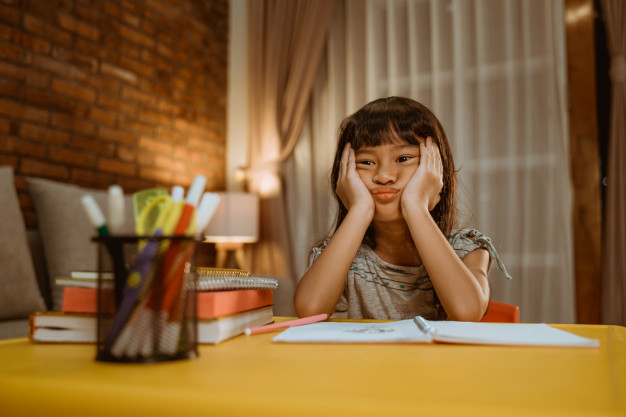
Source: freepik.com
When someone says something about our kids, we tend to become very defensive.
“I’m sure she didn’t do that on purpose.”
“Well, it was just boys being boys.”
“He deserved better than a C for that paper.”
We do this because we see ourselves in our children, and we think that something they do reflects who we are as a person.
In reality, many things are outside our control. If your child gets bullied at school, it doesn’t mean you raised them wrong. The opposite could be true even — maybe they’re getting bullied for being smart or being extra creative.
Regardless of the reason, this bullying doesn’t reflect negatively on your parenting abilities. If you keep this in mind, when you go to the school authorities and report the bullying, you can focus on the bully being held accountable (and getting the mental help they likely need) and more than saving face.
Bless Your Own Anxiety
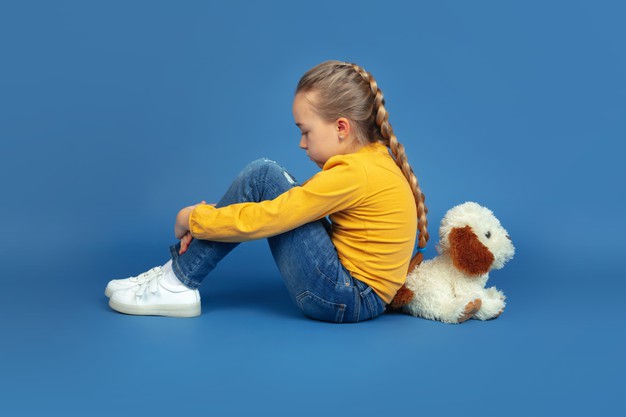
Source: freepik.com
Remember what we said about helping your kids acknowledge their anxiety? The same is true for you.
Even if you only have five minutes to spare a day, try creating a mindful practice where you can address some of that buried anxiety.
One option is to sit and meditate. Or look for other self-care routines that personally appeal to you. If you can sneak the time away, have a hot bath. Or reserve half an hour before bed to read.
In the morning before your kids get up, try doing an exercise you love. Even better if you choose a mindful physical activity, like yoga or qigong.
Ask for Help When You Need It
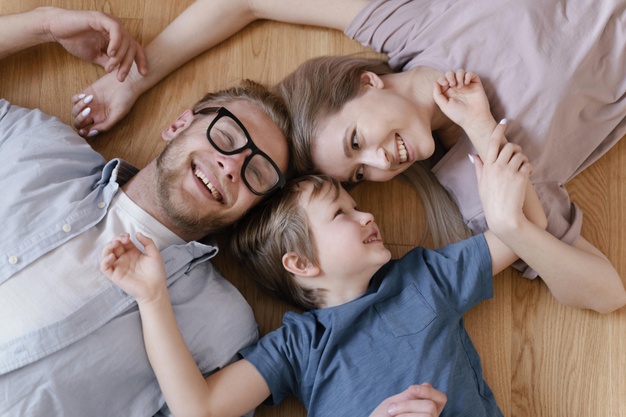
Source: freepik.com
This has also been an exceptionally hard time for people struggling with their mental health. The isolation, limit to healing activities, and access to at-home alcohol have led many people down a dark path.
It’s okay if you need to ask for help after this difficult year. Lookup a therapist in your area — see if they do remote sessions if you’re not comfortable with face-to-face sessions.
If you’ve noticed your alcohol usage has gotten to an unhealthy place, talk to your doctor before quitting cold turkey (which can be very dangerous to do on your own). If you do need further help, look into holistic treatment centers, like The Exclusive Hawaii, that use innovative approaches to help you heal your underlying wounds.
However you address your anxiety, know that you’re not alone. Millions of parents around the world are struggling just like you (even if they seem like they may be more put together than you are.)
You’re allowed to be stressed right now and not do everything right. As long as your child feels safe and seen, you’re doing just fine.

